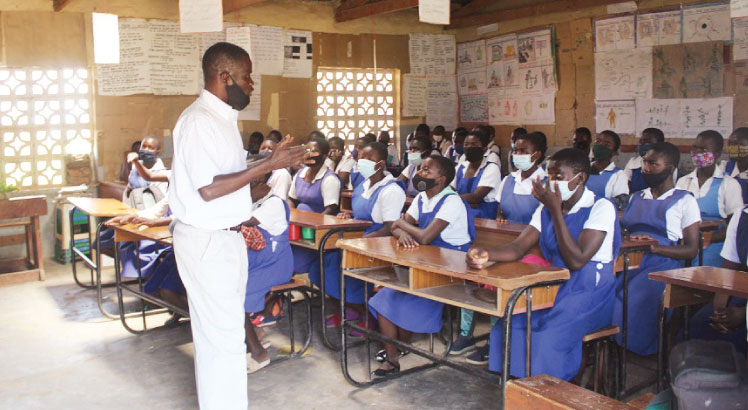Female genital mutilation exists

exposed to FGM
Like any other society in the world, Malawi is governed by a culture wrapped around beliefs, values and customs. Sociologists deem culture as very important for national identity. Much as culture is important for, among other things, the preservation of national development, there are other aspects of culture which are being discouraged and one such is Female Genital Mutilation (FGM). PAIDA MPASO writes.
Unicef defines FGM as an act almost similar to male circumcision. This includes piercing or incision of clitoris and/or labia, stretching of clitoris and/or labia, cauterisation by burning of clitoris and surrounding tissues. The aim is to tighten or narrow the vagina, which in other instances, helps in sexual stimulation.
As it is rightly argued, people without a culture are like a tree without roots. Culture is at the root of national development, and for that development to be sustainable that culture must be vibrant. At the same time some elements of culture can be obstacles to development and FGM has not been spared.
A 2013 report by Unicef indicates that more than 30 million girls in Africa are at risk of being subjected to FGM over the next decade with West Africa leading the trend. The study further highlights that more than 125 million girls and women alive today had undergone the procedure now opposed by the majority in countries where it was practiced.
According to a 2012 Malawi Human Rights report on cultural practices and their impact on the enjoyment of human rights, particularly the rights of women and children in Malawi, it shows that Malawi does have some elements of this practice, though people shun discussing or talking about the subject.
“It is regarded as a taboo by many people. But surely it is practiced, in both towns and villages,” said one victim who refused to mention her name.
“She further said that, most women believe that stretching the labia is a way to a man’s heart, but this is not true. If a man wants to go out and cheat, they will do whether you have them or not. I had them but he still left me,” she says.
The divorced mother of three says sex is all in the mind and has nothing to do with the length of the labia.
“Those things hurt, especially during the pulling. It’s torture and to expect that the meaning of sex changes all because one has them is pathetic,” she adds.
The Malawi Human Rights report further highlights that the Southern part of Malawi is one of the areas where FGM is practiced.
“This is mainly done in initiation ceremonies. Five percent of the respondents said FGM is practiced in their area, and that the girls have their first experience of FGM when they are 10-15 years while 11 percent said that it was for 16-20 year olds,” reads part of the report.
The report further says FGM is mainly common in Traditional Authority Mthiramanja’s area in Mulanje, which involves the cutting off of the tips of the girls’ clitoris by the namkungwi (counsellor) who use finger nails. In this area either an egg or a dildo (wooden penis) is forced into the girl’s vagina to widen it so that it can accommodate any size of penis.
Though most communities are said to have stopped the practice, the act is still very much alive.
Health expert, Rachel Kawalazira says genital mutilation has negative health implications.
“Pulling of the clitoris will lead to loss of sensation of this organ and so reduce libido even orgasm. Its exposure to air will always make it dry and will be rubbing against clothes or underwear. In the end all these will contribute to reduction of sexual sensation or orgasm and pleasure,” says Kawalazira.
The Human Rights report concludes by saying: “It can lead to uncontrollable hemorrhage, acute pain and infection since it is not done with unhygienic and unsterilised instruments. Chronic infection can lead to infertility and anaemia. Genital mutilation can also be traumatising for any child who undergoes the practice. These are all violations of the rights of the child such as right to sound health care and right to life itself.”





